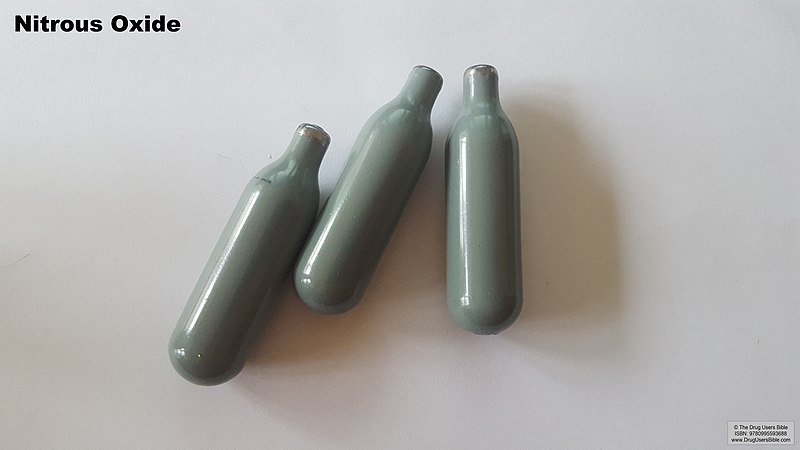
The possession of nitrous oxide, commonly known as laughing gas, will be deemed illegal in three weeks, with stringent penalties for those who misuse the drug. Individuals repeatedly
misusing nitrous oxide could face up to two years in prison, while dealers may be sentenced to a maximum of 14 years behind bars, according to the Home Office.
The ban is scheduled to take effect on November 8, and it will reclassify nitrous oxide as a controlled Class C drug under the Misuse of Drugs Act 1971.
Nitrous oxide is one of the most frequently used recreational substances among young people. The decision to classify it as a Class C drug was approved by Members of Parliament (MPs) with a resounding majority, voting 404 to 36 in favor last month.
Critics of the ban have expressed concerns that it may discourage users from seeking medical assistance. However, the government asserts that the measure is aimed at curbing antisocial behavior and public drug use.
Nitrous oxide, typically contained in small metal canisters, is a colorless gas used in medicine and dentistry as a painkiller and in cooking for producing whipped cream. When inhaled recreationally, it can induce feelings of relaxation, laughter, light-headedness, or dizziness.
Excessive use of the substance can result in headaches, anxiety, paranoia, fainting, or loss of consciousness. A government report, citing several scientific studies, notes that intensive and frequent use can lead to vitamin B12 deficiency, which can cause neurological damage.
Penalties for possession of nitrous oxide may involve an unlimited fine, community service, or a caution, while "repeat serious offenders" may face a prison sentence of up to two years, as outlined by the Home Office. The maximum sentence for the production or supply of the drug for unlawful purposes will be 14 years.
Exceptions will be made for the legitimate use of nitrous oxide, such as for pain relief during labor in maternity wards or in catering. Although individuals will not be required to carry licenses, they must demonstrate that they lawfully possess the substance and do not intend to use it for psychoactive effects.
The government also emphasizes that legitimate suppliers of nitrous oxide should not be negligent when assessing whether someone is purchasing the substance for misuse, warning that "turning a blind eye will be committing an offense."
Chris Philp, the Crime and Policing Minister, stated, "We are delivering on the promise we made to take a zero-tolerance approach towards antisocial behavior and flagrant drug taking in our public spaces. Abuse of nitrous oxide is also dangerous to people's health, and today we are sending a clear signal to young people that there are consequences for misusing drugs. Both users and dealers will face the full force of the law for their actions."
The chief executive of the Night-time Industries Association, Michael Kill, welcomed the ban but emphasized the need for a broader education and harm reduction strategy on drugs. He noted the substantial burden on businesses dealing with discarded nitrous oxide canisters on the streets, leading to risks for staff, patrons, and fostering an environment conducive to crime and antisocial behavior. Photo by DMTrott, Wikimedia commons.


































